Third trimester blood cancer diagnosis rocks young family
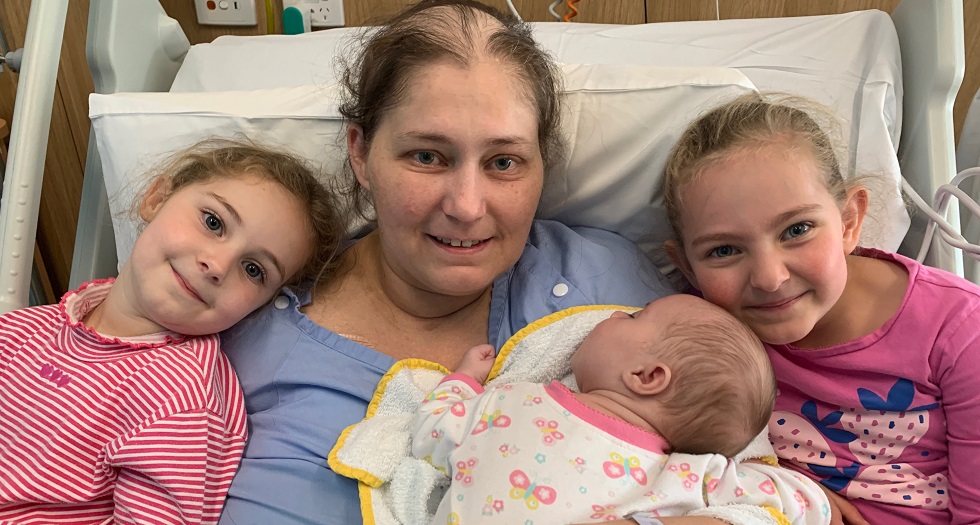
Andrew and Jocelyn Raunjak were preparing for the arrival of their third baby when their world was turned upside-down by a rare blood cancer affecting less than 100 Aussies each year.
The couple hail from Goulburn, a regional town in New South Wales, about an hour north-east of Canberra.
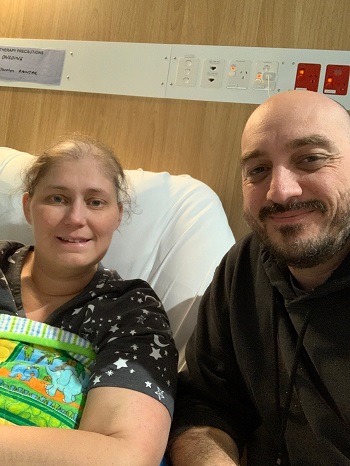
Life was busy raising their young family and both working full time; Andrew, a constable in the local police force and Jocelyn working as a full-time retail manager for Woolworths.
At 36 weeks into her pregnancy, 39-year-old Jocelyn began experiencing severe fatigue and Andrew discovered dark bruising on her back, stomach and legs.
“At our fortnightly check-up, we mentioned the bruising to the mid-wives who requested the obstetrician to examine Joce. She immediately sent us down to pathology to get some blood tests,” explained Andrew.
“Within an hour we got a call saying we needed to get to the hospital ASAP and to bring an overnight bag.”
Upon arrival at Goulburn Hospital the couple were told there were irregularities in Jocelyn’s blood, and they would need to head to Canberra Hospital.
“We were checked into the maternity ward and within half an hour they came in and told us Jocelyn had APML,” said Andrew.
“I said, ‘what’s that?’ and they told us it was a form of leukaemia. I couldn’t believe it. We were completely shocked”.
Acute promyelocytic leukaemia (APML) is a rare blood cancer where immature abnormal neutrophils (a type of white blood cell) known as promyelocytes accumulate in the bone marrow. These immature cells are unable to mature and function like healthy cells.
The next day Jocelyn went in for a caesarean under general anaesthetic.
“I was in the waiting room, out of my mind with worry. They were in surgery for two hours and I was told there was a chance neither would survive the operation,” Andrew said.
But Jocelyn came through the surgery, losing just under a litre of blood, much lower than anticipated considering her blood cancer had left her with an extremely low platelet count of 32 (normally 150-400).
“Our healthy baby girl, Samantha, was born on the 14 March, at three and a half weeks before her due date,” said Andrew.
“They tested the placenta for APML immediately, but the results came back clear. Samantha’s blood was also tested for the disease immediately after the birth, which also came back clear. A follow up test in May showed that Samantha has no trace of the disease.”
Treatment begins…
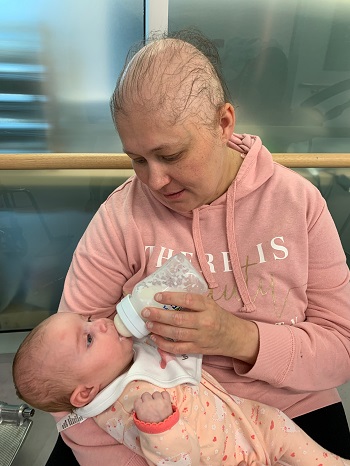
Jocelyn started the standard treatment for APML immediately: chemotherapy and arsenic trioxide.
Within a day she started to experience an onslaught of life-threatening side-effects including kidney failure, severe mouth ulcers and internal bleeding.
“Once I was called to come to the hospital in the middle of the night because she had started bleeding heavily due to the mouth ulcers,” Andrew added.
“It took an hour for doctors to control the bleeding”.
Over the course of the following three days, Jocelyn developed dizziness, doubled vision followed by blurred vision. She became incoherent in her verbal communication and could not write in any form, to be understood.
“The next day she fell unconscious and wouldn’t wake up. She had to be rushed to intensive care and put on life support,” said Andrew.
Jocelyn was in a coma for 11 days in order to stabilise her condition. Whilst on life support, she developed seizure-like events and swelling on the brain.
“Shortly after waking up from the coma, Jocelyn was still bleeding internally,” said Andrew.
“Doctors rushed her to theater for two separate procedures to stop the bleeding from three ulcers that were located in her intestines. Thankfully the medical staff were able to get on top of it.”
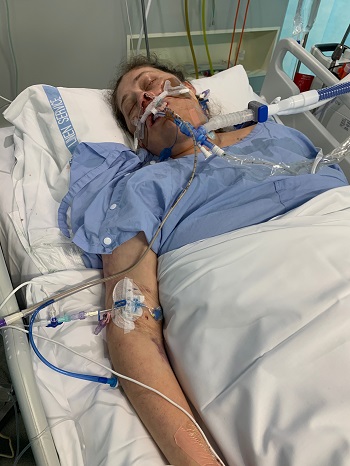
She fought for her life in hospital for eight weeks, but she made it through the first phase of her treatment and was discharged on 13 May 2020, exactly 2 months from being admitted into hospital.
A home-away-from-home
During the eight-week ordeal, with help from his mother-in-law and father-in-law, Andrew was caring for their three children, including Samantha’s older sisters, Michelle, five, and three-year-old Rebecca.
Forced to rush to an unfamiliar city for life-saving treatment, the family have been provided a home-away-from-home at the Leukaemia Foundation’s John James Patient Accommodation Village in Canberra for the duration of Jocelyn’s treatment.
The John James Foundation proudly funded construction of the Village, a cost of more than $7 million, on land provided by the ACT Government. The village was opened in 2016 and has provided a safe haven for many families during treatment.
“I knew of the Leukaemia Foundation but really didn’t understand the range of services they offer.
“It’s just unbelievable we can stay in this accommodation at no cost, with staff on site to make sure we have everything we need.
“I just don’t know what we would’ve done if we hadn’t had that support. I certainly wouldn’t have coped.
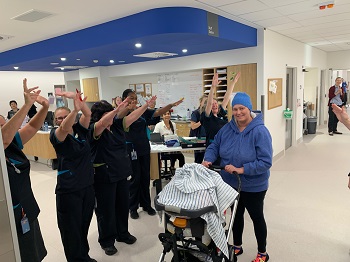
Reflecting on the past couple of months
“Jocelyn is obviously still very emotional about the whole thing. Due to being cytotoxic from the treatment, she couldn’t breast feed, which was really upsetting.
“The COVID-19 outbreak is making it even more difficult as we couldn’t have any visitors.”
Andrew has been home-schooling his older children because of the COVID-19 lockdown and says the girls have found the past couple of months unsettling.
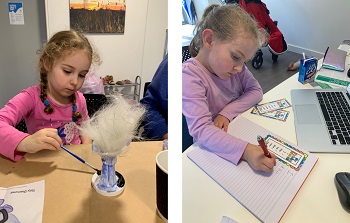
“During the night they were crying their hearts out because they couldn’t see their mum at all,” said Andrew. “They often weren’t allowed in the hospital as there was a strict one-visitor rule.”
Jocelyn now has the next phase of her treatment ahead of her, which she will undergo as an out-patient keeping a base at the Leukaemia Foundation’s John James Village Accommodation Village in Canberra.
The family are thankful for the support they have been shown through the toughest of times.
“We have a long road ahead of us but are just feeling incredibly grateful we have everyone behind us and Jocelyn is on the path to recovery.”